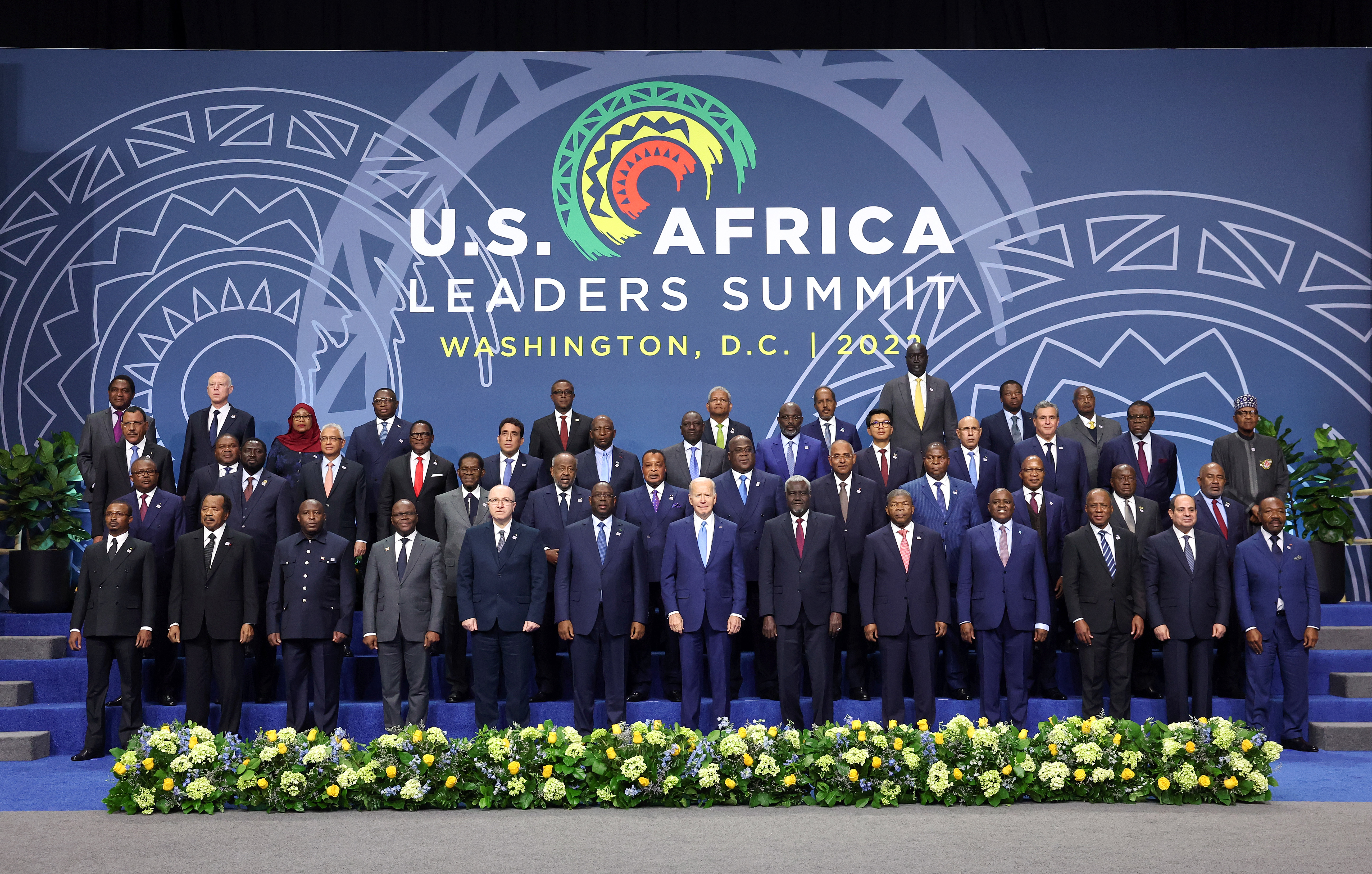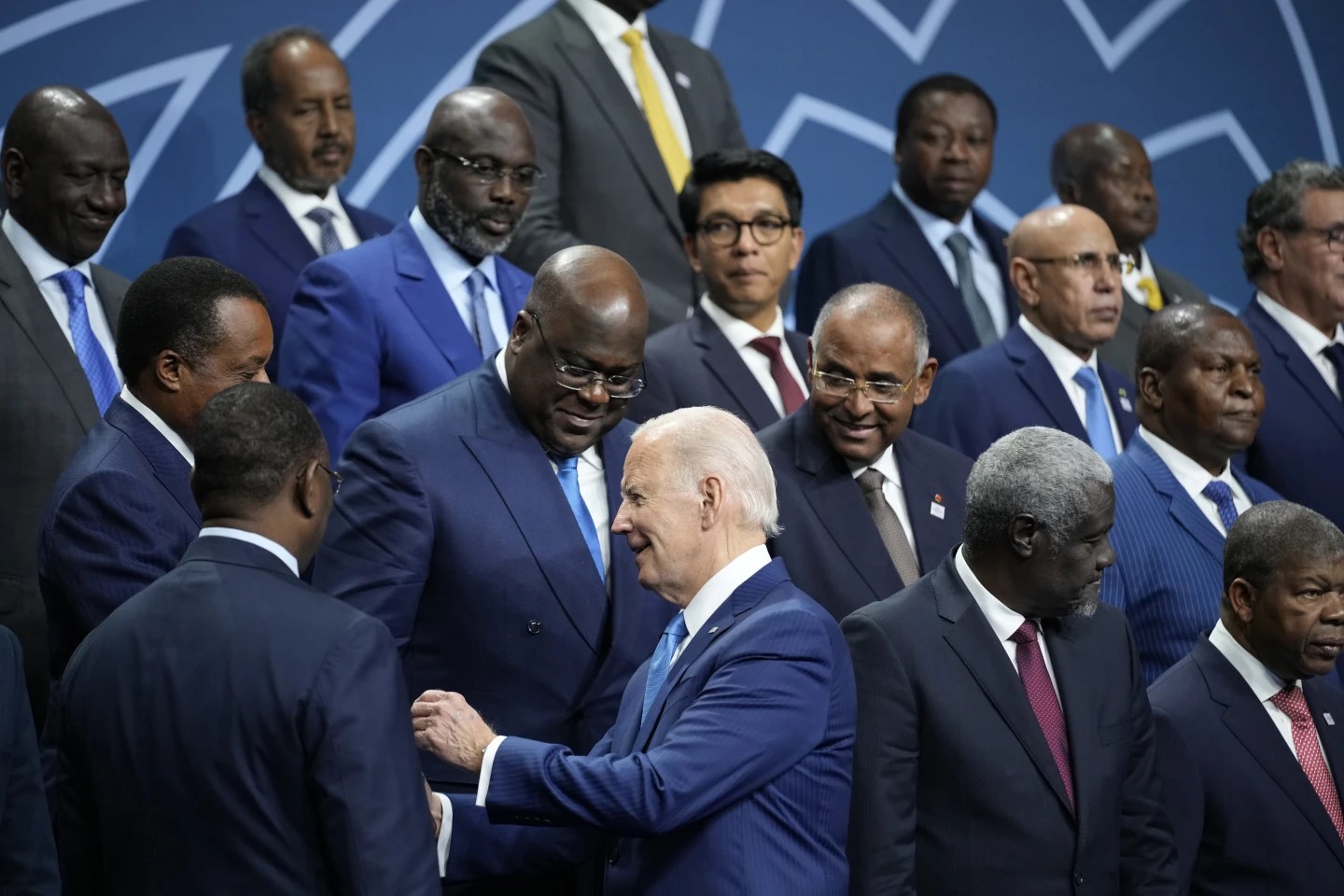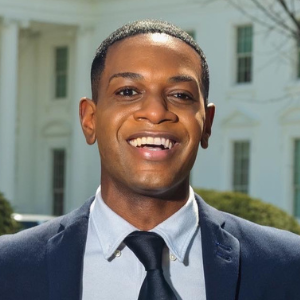Biden tests diplomacy in shifting trade ties with African nations
Biden announced he intends to terminate Central African Republic, Gabon, Niger and Uganda as beneficiaries of the African Growth and Opportunity Act, also known as AGOA.
U.S. President Joe Biden’s decision to remove four countries, accused of human rights or rule of law violations, from a decades-old trade program in sub-Saharan Africa has sparked mixed reactions from advocates of the region.
Earlier this week, Biden announced that he intends to terminate the Central African Republic, Gabon, Niger and Uganda as beneficiaries of the African Growth and Opportunity Act, also known as AGOA.
The decision from Biden came as a shock and surprise to some African policy experts and advocates.

Dorothy M. Davis, a decades-long Africa diplomacy expert who has consulted U.S. and international agencies, told theGrio that while she understands the “internal issues” in the Central African Republic, Gabon, Niger and Uganda, the decision to remove them from the AGOA program will be harmful to their citizens.
“I view AGOA as being targeted to the people of the country, helping women, men, entrepreneurs, get their products here,” said Davis, who runs her own consulting firm, Dorothy M. Davis Consulting.
She added, “AGOA is really for these entrepreneurs, and how are they going to feel about the U.S. basically taking this program away from them at this moment?”
The act, signed into law by President George W. Bush in 2000, grants dozens of African countries access to trade in the U.S. market and allows them to export certain goods without paying taxes — also known as duty-free trade.
In addition to calling on Congress to reauthorize AGOA beyond 2025, Biden said in a letter to the Senate that the Central African Republic, Gabon, Niger and Uganda were not eligible for AGOA status because they violated either the rule of law or human rights.
The Central African Republic, which has been accused of suppressing democratic elections, enacted a constitutional referendum last summer that removes presidential term limits, and, as the United Nations puts it, “undercuts the country’s democratic governance.”
In his letter to the U.S. Senate, Biden accused the nation of engaging in “gross violations of internationally recognized human rights.”
AGOA has been credited for helping to bolster economic growth in the region and improve investment between the U.S. and the African continent.
However, in recent years, several countries have encountered instability and turmoil, or have adopted laws or policies in contrast to U.S. and international standards on human rights.
Niger and Gabon fell into political instability caused by military coups this past summer that Biden described as an inability to make “continual progress toward establishing the protection of political pluralism and the rule of law.”

In Uganda, an internationally condemned anti-homosexuality bill targeting LGBTQ+ citizens with punishments as severe as death went into effect in May. Ugandan President Yoweri Museveni signed the bill into law despite strong opposition and warnings from the U.S.
“Despite intensive engagement between the United States and the Central African Republic, Gabon, Niger, and Uganda,” Biden said, “these countries have failed to address United States concerns about their non-compliance with the AGOA eligibility criteria.”
A former U.S. official with deep knowledge of AGOA, declining to comment on the record, expressed anger over the Biden administration’s decision to terminate the four countries from the program.
But as it relates to terminating Uganda for its anti-LGBTQ+ policies, some are applauding the administration for taking a tough stance.
Bishop Joseph Tolton, an African policy expert and advocate who has done missionary work on the continent, told theGrio that, as it relates to Uganda, it was “an appropriate decision.”
“This was a very strong effort by the administration to send a clear message to Uganda and a clear signal to these other countries about what the implications could be,” said Tolton, who noted that similar anti-homosexuality bills are advancing in other African nations, including Kenya, Ghana and Zambia.
“Human rights clearly have won the day in the context of a matter of trade and business, and that is not to be just kind of easily disregarded,” he added.

Tolton said he also believes targeting a country that is part of the “coup belt” was important to “make a statement.”
He explained, “President [Biden] clearly decided, ‘I have to do something now.’ Because if we keep dancing around this, the idea that we are the advocates for democracy globally, or at least under his administration, that’s the position and posture of the United States government, really becomes a bit laughable, and we start to undermine ourselves.”
Tolton said the U.S.’s diplomacy strategy will likely “rebuke them and hope that they kind of come back to their democratic senses.” He added, “Because we also don’t want to see another country … in the pocket of Russia or China.”
Davis said that while she is sure the U.S. is conducting “diplomatic dialogue” with each African country in jeopardy of losing its AGOA status to “rethink some of their policies,” she thinks ongoing diplomacy rather than termination from the trade program would be “more effective.”
“It doesn’t send the right message,” she told theGrio.

However, Biden signaled that the door is open for each country to maintain or reestablish their eligibility with AGOA. The president said that while he intends to move forward on terminating them, effective Jan. 1, 2024, he will “continue to assess” the eligibility requirements.
“I don’t think it’s, like, permanent,” said Davis, the consultant, “Even though no one knows what that timeframe is.”
“I am sure that the U.S. government is continuing to negotiate with this as a carrot of sorts,” she added. “I don’t see our government stopping the attempt at negotiations.”
Tolton said the timing of President Biden’s decision is also interesting because it happened the same day that Vice President Kamala Harris swore in the President’s Advisory Council on African Diaspora Engagement.
He noted the council, which includes actress Viola Davis, will be responsible for advising the president on U.S.-Africa foreign policy.
“The fact that this happened right when they were to be sworn in, I think, also sends a very clear message with regard to what their mandate is and what the priorities of the administration are,” Tolton said.
“It’s gonna be really interesting to watch what the outcomes of that advisory council are and how some of these decisions now become impacted by whatever recommendations they deliver in the next year or so.”

Gerren Keith Gaynor is a White House Correspondent and the Managing Editor of Politics at theGrio. He is based in Washington, D.C.
TheGrio is FREE on your TV via Apple TV, Amazon Fire, Roku, and Android TV. Please download theGrio mobile apps today!

